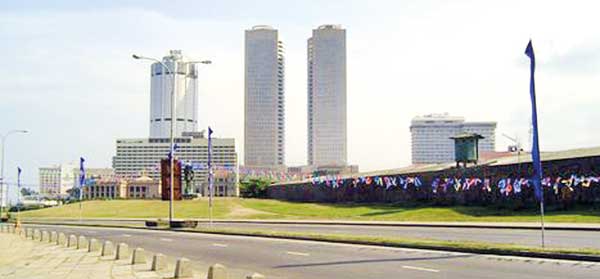Reply To:
Name - Reply Comment
Last Updated : 2024-04-27 00:40:00

.jpg) Much has been achieved in terms of improved quality of life around the world. Since the 1970s, the average global income has more than doubled and the range, amount and quality of goods and services now available to people is unprecedented. Life expectancy has increased, sometimes substantially, in almost all the countries in the world, and a child born today can expect to live longer than at any other time in history. In many developing countries, mortality rates are at about 60% of what they were just 30 years ago. More and more children have access to education and since 1960; the proportion of people who attend school has risen from 57% to 85%. Looking back over the past 40 years, the UNDP’s Human Development Report of 2010 concludes that there has been impressive progress around the world.
Much has been achieved in terms of improved quality of life around the world. Since the 1970s, the average global income has more than doubled and the range, amount and quality of goods and services now available to people is unprecedented. Life expectancy has increased, sometimes substantially, in almost all the countries in the world, and a child born today can expect to live longer than at any other time in history. In many developing countries, mortality rates are at about 60% of what they were just 30 years ago. More and more children have access to education and since 1960; the proportion of people who attend school has risen from 57% to 85%. Looking back over the past 40 years, the UNDP’s Human Development Report of 2010 concludes that there has been impressive progress around the world..jpg) In this context, a ‘reimagining’ of development – what it is as well as how we get there, or critically assessing whether the concept is obsolete to meet current challenges – may be opportune. The Centre for Poverty Analysis hopes to provide momentum to the discourse on alternative development goals and paths at its eleventh Annual Symposium on the 11th and 12th of December.
In this context, a ‘reimagining’ of development – what it is as well as how we get there, or critically assessing whether the concept is obsolete to meet current challenges – may be opportune. The Centre for Poverty Analysis hopes to provide momentum to the discourse on alternative development goals and paths at its eleventh Annual Symposium on the 11th and 12th of December.
Add comment
Comments will be edited (grammar, spelling and slang) and authorized at the discretion of Daily Mirror online. The website also has the right not to publish selected comments.
Reply To:
Name - Reply Comment
US authorities are currently reviewing the manifest of every cargo aboard MV
On March 26, a couple arriving from Thailand was arrested with 88 live animal
According to villagers from Naula-Moragolla out of 105 families 80 can afford
Is the situation in Sri Lanka so grim that locals harbour hope that they coul

8 hours ago
26 Apr 2024